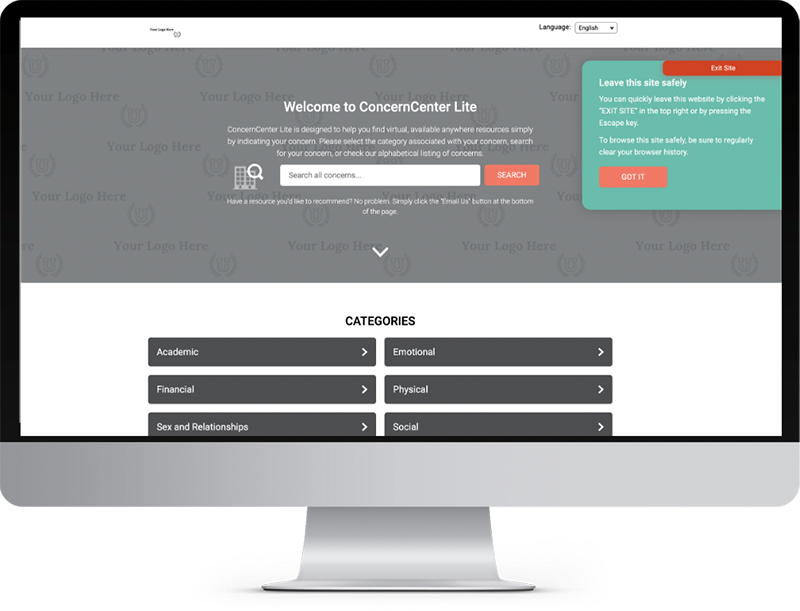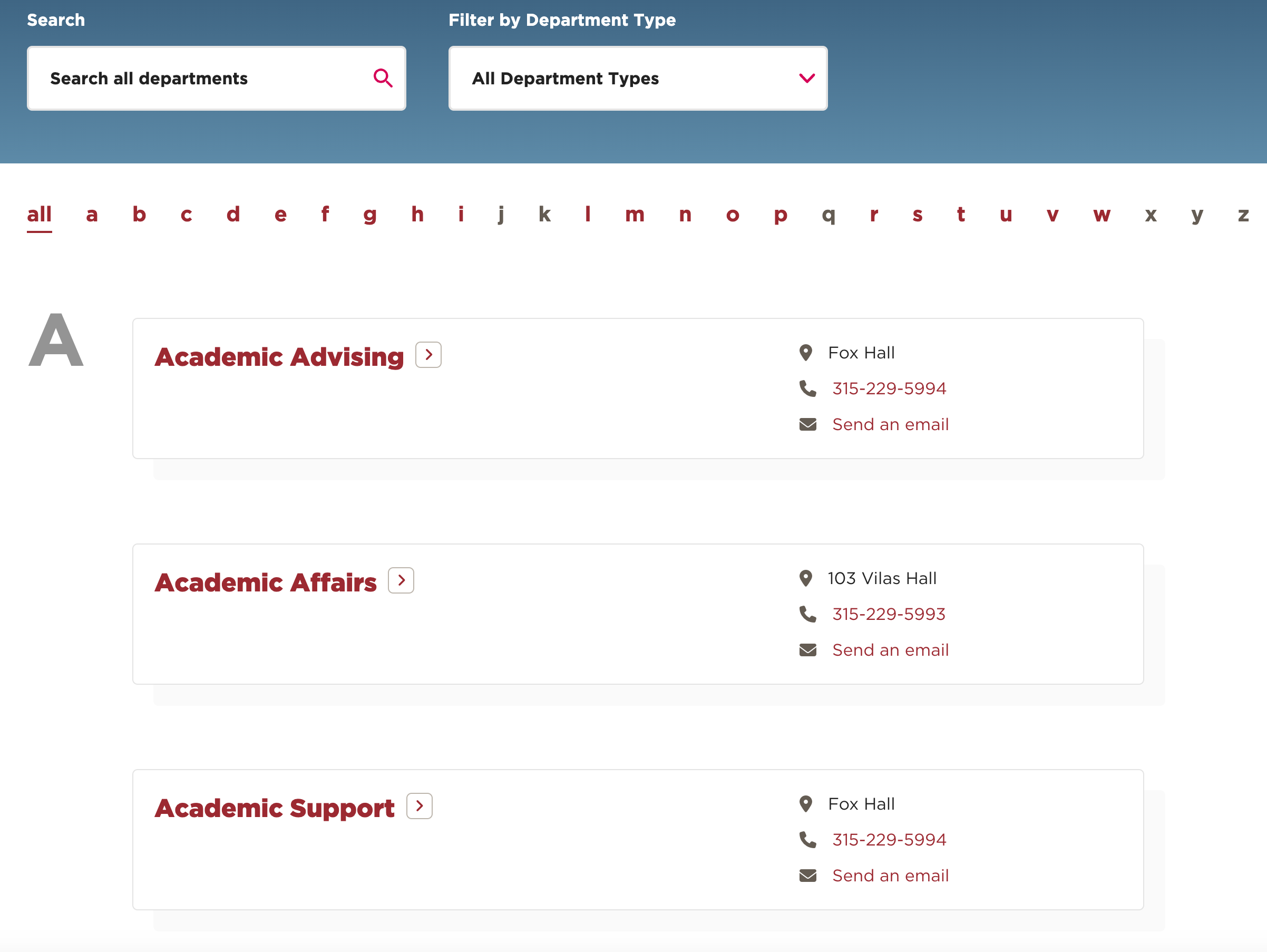The title says enough, so we’re going to spare you the 5 paragraph intro. Here’s 21 proven tactics that we and our higher ed partners use to mitigate staff burnout.
- Get flexible – Offer greater flexibility for your staff with remote work time and encourage them to take advantage of it. Your younger staff especially will be encouraged and motivated by the trust you extend when you allow work-from-home, and they really like the idea of flex time.
- Lunch with Leaders – Offer individual coffee meetings / lunches with senior staff members. This helps with professional development, opens valuable communications channels, and builds a stronger culture. Lunch with leaders is also a great way to recognize and reward your top performers.
- Props from the boss – Public thanks/congratulations from the President or other senior leadership following major events goes a long way to keep staff feeling motivated and engaged. Have your leaders send emails out to the organization recognizing top contributors, out-of-the-box thinkers, and above-and-beyond delivery.
- Leader swap – Make arrangements with colleagues in other institutions to swap mentorship time – half hour coffee chats / virtual chats with your staff. Talking to one’s actual boss can induce anxiety and tends to put a damper on honest/open dialog but tapping the wisdom from another institution opens up a world of new possibilities, fresh thinking, innovative solutions. They share theirs; you share yours.
- Tea with the Prez – President hosts the staff for afternoon tea (or non-alcoholic beverage of their choosing) and social interaction to create a space for conversation outside the normal day-to-day.
- Ticket to the trustee lunch – Select a small number of staff members to attend your annual trustee lunch. Give them access to a conversation at a different altitude from their norm. Expand their perspective and treat them to an exclusive event.
- Learn their love languages – Not everybody likes a public recognition email or a shiny trophy on their desk. Send out a survey to learn how each of your staff prefers to be recognized – or if they prefer not to be. Take the time to learn what kinds of rewards they appreciate.
- Bonus hour – Surprise meeting cancellations! In all honesty for most of us, as we look back over the last year, we can acknowledge that more than a couple meetings could have been handled as emails. If you’re gathering the troops for an info download, a policy update or an after-action recap think about checking the box with an email instead. A well-timed, unexpected spare hour can bring big relief to your staff.
- Rubber ducks – Consider a staff-to-staff recognition program. The staff at the Health and Counseling Center at SUNY Geneseo had a stash of unique rubber ducks and encouraged staff to give them out when they wanted to recognize their colleagues. Some ducks were given when the moment struck. Others were presented during staff meetings. Always the reason for the recognition was shared as the duck was presented. Let us know what you use for “ducks” in the comments.
- Boxing gloves – You knock me out! Like rubber ducks, but there’s only one pair of boxing gloves (or whatever object/story you want to use). Every week the current holder of the gloves selects the next person and hands them off with an explanation as to how that person knocked it outta the part over the last week. When you have boxing gloves on your desk people come by to ask you about it.
- Look within – Supervisors need to realize that, much of the time, they are the problem and they don't realize it. We know because that was us! Sometimes it’s their agenda. Sometimes it’s their relationship with their own supervisor. This calls for some SSA – supervisor self-awareness. Get a coach or a mentor. Take an honest look at where you, or your behavior, may be maladaptive.
- Setting boundaries – Encourage your staff to set boundaries and help them make it happen. With so many people leaving the field, workload is being redistributed like a ton of bricks. Setting boundaries helps to keep employees healthy. If you see they are responding to texts and emails at 10:00pm, etc., step in to help them maintain a better balance. Empower them to have healthy limits. Also, be realistic with your own leaders on what can/can’t be accomplished as resources contract. A good supervisor understands what can and cannot be done by staff, and in what timeline.
- Automate – Stay current on new technologies that can automate tasks and workflow. ChatGPT, Text Em’ All, ConcernCenter, Calendar Sync are all tools that a modern institution should be leveraging heavily for improved throughput and staff relief.
- Don’t kill the goose – Be mindful of who you keep passing work off to. Your most competent and capable staff should not be your dumping ground. Good management means maintaining accountably for under-producers, not just leveraging your star performers. For long term success, keep your workhorses healthy.
- Let’s get clinical – Use a clinical hour for your meetings. Limit meetings to 25 or 50 minutes. You’ll be surprised how things just manage to fit when the container shrinks. Leave the extra 5 or 10 min for notes capture, time critical actions and decompression.
- Skill Development Opportunities – Offer opportunities for staff to enhance their skills and expertise through workshops, courses, and training sessions; including time management training. Empowering staff to develop professionally can lead to increased job satisfaction and motivation.
- Wellness Initiatives – Introduce wellness initiatives such as yoga sessions, mindfulness workshops, or access to mental health resources. These initiatives can help staff manage stress, improve mental well-being, and enhance overall work-life balance. Just be sure to ask your staff what their preferences are. Forced wellness/health initiatives are getting a lot of backlash as ill-informed practices that don't take into culture, body size, finance.
- Clear Communication Channels – Ensure that communication channels between leadership and staff are transparent and open. Regular updates on organizational changes, policies, and goals help alleviate uncertainty and create a sense of inclusion.
- Celebrate Milestones – Celebrate staff milestones, both personal and professional, such as work anniversaries, birthdays, and accomplishments. Recognizing these moments fosters a sense of belonging and appreciation. In Recreational Services at Rochester Institute of Technology, Director Dave Stevens celebrates “work-a-versaries”, a time to celebrate the commitment staff have made to the institution as well as the department.
- Staff Input and Involvement – Encourage staff to actively participate in decision-making processes and provide input on matters that affect their roles. This involvement empowers staff, increases their sense of ownership, and promotes a positive work environment. Be careful though – asking staff for their feedback and then not incorporating it, turn this activity from empowering to discouraging.
- Highlight Your EAP program – Run a “did you know” campaign about the ways EAPs can help staff.


